26 Mar 2018 | Awards, Fellowship, Fellowship 2018, News
[vc_row][vc_column][vc_video link=”https://youtu.be/7kseuuaARZQ”][vc_column_text]The Egyptian Commission for Rights and Freedoms (ECRF) is one of the only human rights organisations still operating in a country increasingly hostile to dissent and in which countless civil society organisations have been forced to close. The commission coordinates campaigns for those who have been tortured or disappeared, as well as highlighting numerous incidences of human rights abuses.
“Our main goal to achieve in the future, which is stated in our mission, is to empower individuals to acquire their rights, promote a culture of democracy in the Egyptian society, and expand human rights to every home in Egypt,” ECRF told Index. “But in the end of the day we decide to carry out with our work regardless of the challenges because if everyone is silenced this would be the ultimate gain to the current regime, and the ultimate victory to Egypt’s state of fear.”
Between August 2016 and August 2017, the ECRF documented 378 cases of enforced disappearance many of whom were students. The cases of the disappeared are not reported in the heavily censored local media, and the commission’s website and social media sites are some of the few places their plight can be publicised, reported and mapped.
The highly restrictive and repressive environment Egypt has made it increasingly difficult for the organisation to do its work.
Their website was blocked in September in government measures designed to close the organisation down, but the ECRF managed to create a parallel website to maintain their presence and engagement with the public. Twice last year ECRF’s headquarters was raided by security forces with two staff members being arrested. As a result, the staff need help dealing with the risks of being arrested, as well as dealing with the interrogation process and knowing how to protect information.
Over the past 12 months the ECRF has been fighting censorship and defending human rights in two ways. The first is through the criminal justice programme which tackles issues of torture and enforced disappearances in Egypt. It has been particularly focused on the arrest of activists who took part in demonstrations against Egypt’s agreement to cede two uninhabited islands in the Red Sea to Saudi Arabia.

Secondly, ECRF has worked on challenging censorship imposed on student associations in universities. Recently the commission launched an online platform to bring students and practitioners online to discuss a student charter related to freedom of association in universities. The platform was heavily criticised by the ministry of higher education in Cairo, which led to further condemnation of it in official media outlets.
As a direct result of the work ECRF has carried out over the past year, there has been an increased awareness of enforced disappearances, media censorship, the scale of torture, and violations of freedom of association and expression in media and universities.
“ECRF is honored to be shortlisted alongside three peer organizations/campaigns also facing severe human rights challenges in their own countries,” said ECRF. “The international recognition of ECRF’s efforts in campaigning for fundamental freedoms emboldens its members and staff in their resilience to strive for human rights and democracy in Egypt. Regardless of the winner, progress towards equal rights in Russia means progress in Egypt and progress in Kenya means progress in Iran and vice-versa.”
See the full shortlist for Index on Censorship’s Freedom of Expression Awards 2018 here.[/vc_column_text][/vc_column][/vc_row][vc_row full_width=”stretch_row_content” equal_height=”yes” el_class=”text_white” css=”.vc_custom_1490258749071{background-color: #cb3000 !important;}”][vc_column width=”1/2″][vc_custom_heading text=”Support the Index Fellowship.” font_container=”tag:p|font_size:28|text_align:center” use_theme_fonts=”yes” link=”url:https%3A%2F%2Fwww.indexoncensorship.org%2Fsupport-the-freedom-of-expression-awards%2F|||”][vc_column_text]
By donating to the Freedom of Expression Awards you help us support
individuals and groups at the forefront of tackling censorship.
Find out more
[/vc_column_text][/vc_column][vc_column width=”1/2″ css=”.vc_custom_1521479845471{background-image: url(https://www.indexoncensorship.org/wp-content/uploads/2017/05/2017-awards-fellows-1460×490-2_revised.jpg?id=90090) !important;background-position: center !important;background-repeat: no-repeat !important;background-size: cover !important;}”][/vc_column][/vc_row][vc_row][vc_column][vc_basic_grid post_type=”post” max_items=”4″ element_width=”6″ grid_id=”vc_gid:1522065946315-a2955265-bb40-3″ taxonomies=”10735″][/vc_column][/vc_row]
22 Mar 2018 | Awards, Fellowship 2018, News
[vc_row][vc_column][vc_video link=”https://youtu.be/WzJkJikmYe8″][vc_column_text]Abbad Yahya is a 29-year-old Palestinian novelist whose fourth novel Crime in Ramallah was banned by the Palestinian authority in the West Bank in 2017. The novel includes depictions of gay sex, as well as political commentary about fanaticism and religious extremism — subjects largely considered taboo in the region. All copies of the book were confiscated by the attorney general in February this year, on the grounds it contained texts that threatened public decency.

When the controversy arose, Yahya was abroad in Qatar. He was so afraid for his life that he did not to go back to his native Ramallah and spent time in other countries in the Middle East and Europe. Threats were issued to him and his family via social media and copies of the book burnt on the Gaza strip. The Public Prosecutor issued a summons for questioning against Yahya and detained the distributor of the novel.
Despite this, Yahya has spent the last year giving interviews to the international and Arab press and raising awareness of freedom of expression and the lives of young people in the West Bank and Gaza, particularly in relation to their sexuality.
“In my point of view, the most important impact of all of this, was raising the awareness amongst the youth and their decisions that are related to their sexual lives, as well as making a public discussion about the issue,” says Yahya.
Crime in Ramallah follows the lives of three young Palestinian men and the different ways they cope with living in the claustrophobic society of Ramallah. The passage in the novel most cited as causing outrage is when one of the characters sees a picture of the Palestinian leader Yasser Arafat with a gun and imagines it as a penis.
The novel was criticised by some of Yahya’s own colleagues. According to AP, the head of the Palestinian Writers Union, Murad Sudani, said it was a: “silly novel that violates the national and religious values of the society in order to appease the West and win prizes.”
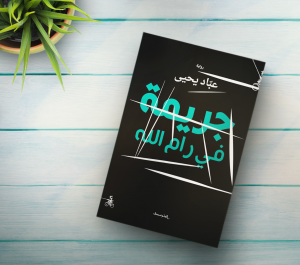 “The job of the writer in our occupied country is to raise the hope and enlighten people — not to break the national and religious symbols,” Sudani added. “My freedom as a writer ends when the freedom of the country begins.”
“The job of the writer in our occupied country is to raise the hope and enlighten people — not to break the national and religious symbols,” Sudani added. “My freedom as a writer ends when the freedom of the country begins.”
But Yahya does not agree. “Censors proclaim themselves to be the representatives of the public and their opinion, while present us as an obscure minority, insignificant in its voice and influence,” Yahya tells Index on Censorship. “This nomination proves the exact opposite, as it comes as a recognition of what we do and the things we stand for, and a proof that our voice is indeed heard. Freedom is contagious, and being one of the nominees strengthens my unshakable conviction in the ideals of freedom and freedom of expression.
See the full shortlist for Index on Censorship’s Freedom of Expression Awards 2018 here.[/vc_column_text][/vc_column][/vc_row][vc_row full_width=”stretch_row_content” equal_height=”yes” el_class=”text_white” css=”.vc_custom_1490258749071{background-color: #cb3000 !important;}”][vc_column width=”1/2″][vc_custom_heading text=”Support the Index Fellowship.” font_container=”tag:p|font_size:28|text_align:center” use_theme_fonts=”yes” link=”url:https%3A%2F%2Fwww.indexoncensorship.org%2Fsupport-the-freedom-of-expression-awards%2F|||”][vc_column_text]
By donating to the Freedom of Expression Awards you help us support
individuals and groups at the forefront of tackling censorship.
Find out more
[/vc_column_text][/vc_column][vc_column width=”1/2″ css=”.vc_custom_1521478525252{background-image: url(https://www.indexoncensorship.org/wp-content/uploads/2017/05/2017-awards-fellows-1460×490-2_revised.jpg?id=90090) !important;background-position: center !important;background-repeat: no-repeat !important;background-size: cover !important;}”][/vc_column][/vc_row][vc_row][vc_column][vc_basic_grid post_type=”post” max_items=”4″ element_width=”6″ grid_id=”vc_gid:1521806417232-57215ec6-b0de-4″ taxonomies=”10735″][/vc_column][/vc_row]
1 Mar 2018 | China, News
With the historic announcement at the weekend that China would end the two-term limit on presidents, meaning the current leader Xi Jinping could be president for life, it created an online storm.
People took to the popular Chinese social media apps Weibo and WeChat to express either disdain and outrage. It didn’t take too long for the country’s well-oiled censorship apparatus to swing into action and ban all of the obvious terms related. Within hours, you couldn’t say “I don’t agree”, “migration”, “emigration”, “re-election”, “election term”, “constitution amendment”, “constitution rules”, “proclaiming oneself an emperor”, “Yuan Shikai (Former Emperor)” and “Winnie the Pooh” (more on this soon).
At the same time, Chinese citizens created and widely shared a series of memes. Most of these have since been removed, but not before enough people saw them, screenshots were taken and they were spread on media beyond the censor’s reach. Here’s an overview of some of the best:
King Winnie
The world’s favourite cuddly teddy bear, unless you’re a Chinese leader. After a meme likened the cartoon character with the Communist Party leader went viral in 2013, Winnie the Pooh became a popular meme when riffing Xi – and arguably the world’s most censored children’s book character. That has not stopped people persisting with the animated representation of the leader. In response to the new proposal, several of the following memes circulated:

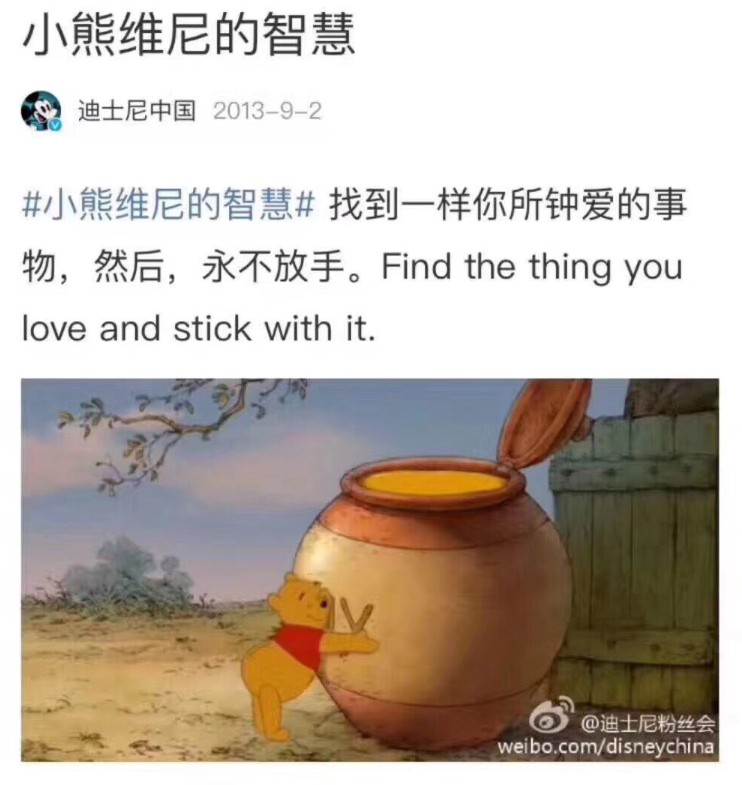

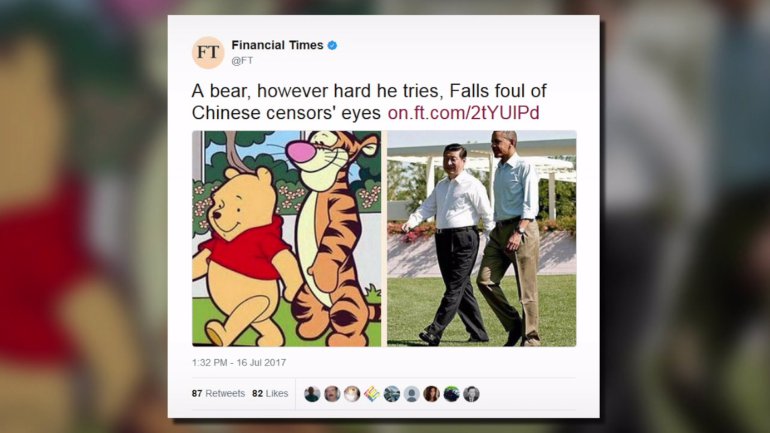
The original meme that prompted the government to ban Pooh in 2013.
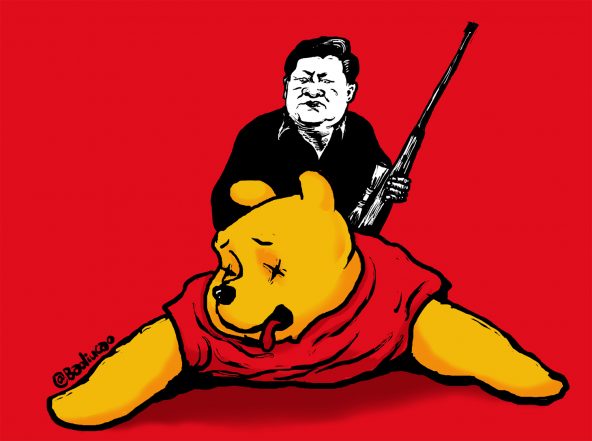
Another oldie but goodie expressing Xi’s disdain for Pooh, created by cartoonist Badiucao in the China Digital Times.
Emperor Xi
An obvious one here. Graphics emerged with references to past emperors of China, emphasizing the point that this new proposal is reminiscent of past Chinese rulers and dictators. Some of these graphics censored include:
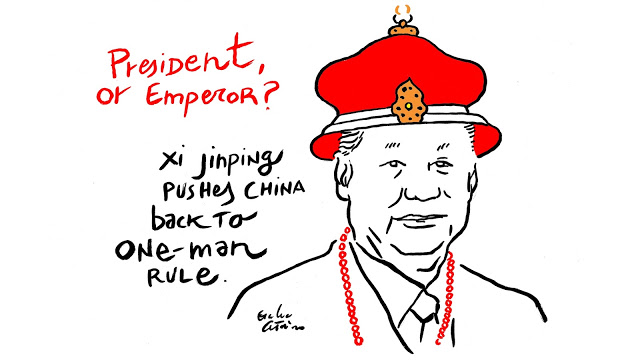
Cartoon created on political activism website, ChannelDraw.
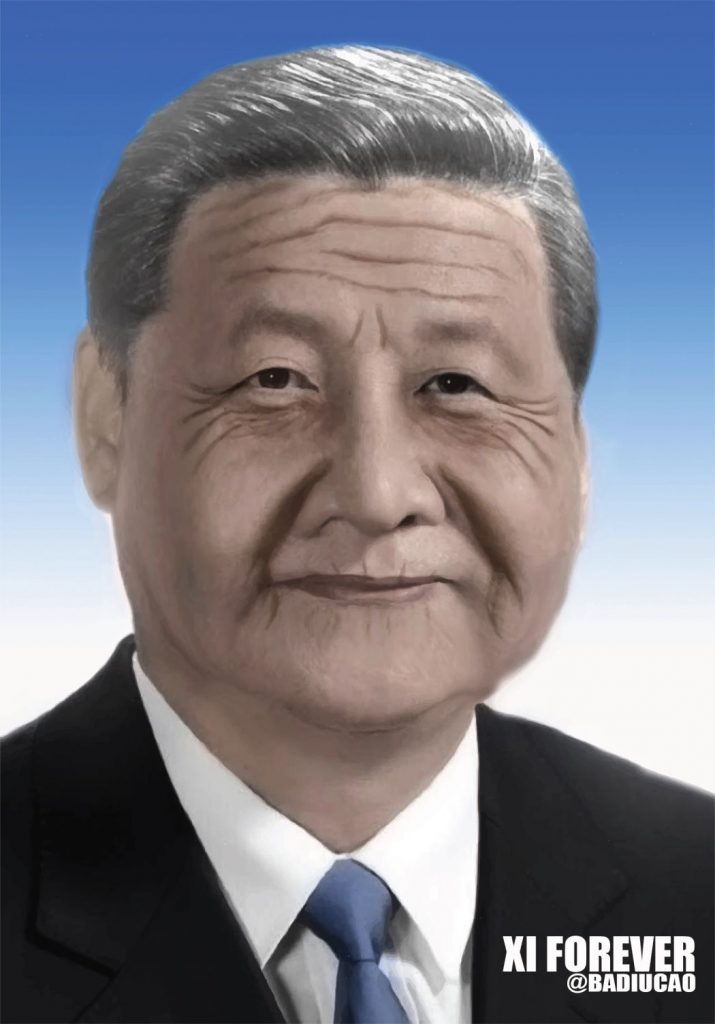
Graphic created after the announcement by Badiucao, prolific political activist and cartoonist.
Silver lining?
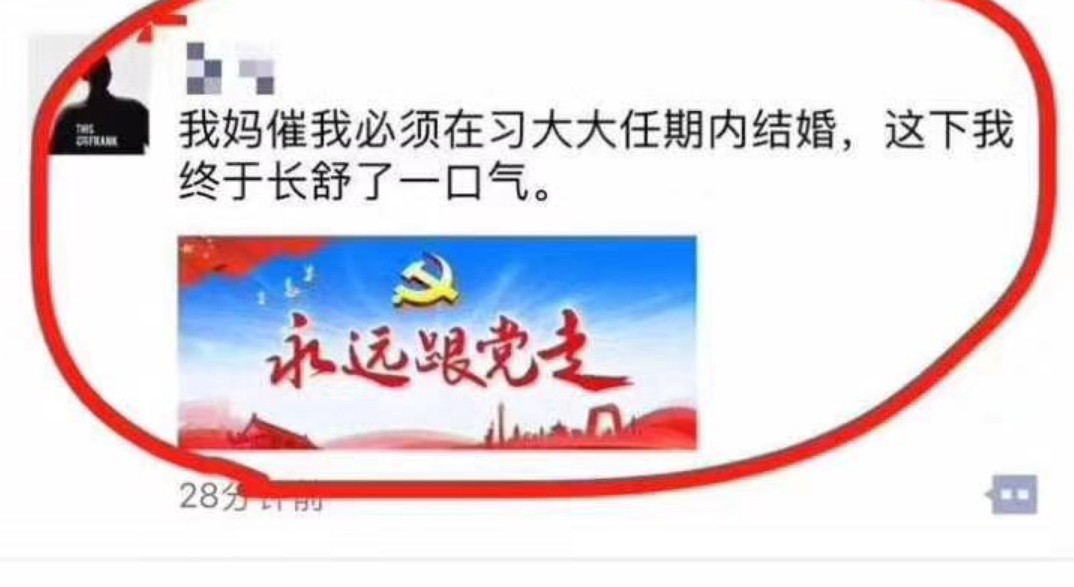
Perhaps the best of the memes, combining as it does a joke about Xi’s term extension and a joke about the common Chinese pressure to get married. It reads: “My mom said that I have to get married before Xi Dada’s term in office ends. Now I can breathe a long sigh of relief.”
Don’t forget the bunnies
While the latest news is sure to keep the censors busy for some time, they’ve been waging another war in China this year against #Metoo, which has recently come to the country and has not been well-received by a government uncomfortable with any form of protest (read our article on protest in China here). Initially the hashtag #woyeshi went viral, which literally means “me too”. When that was banned, people got creative. Introducing the rice bunny. Rice in Mandarin is mi and bunny tu, pronounced basically “me too”. Now China’s internet is awash with images of bunny and rice combos, that is until the censors catch up. Bunnies and Pooh bears – China’s internet might be censored, but it’s never boring.

The Rice Bunny is against sexual harassment. Image from @七隻小怪獸 on Weibo
12 Feb 2018 | Events
[vc_row][vc_column][vc_column_text]

(Photo illustration: Shutterstock)
Celebrate fifty years since the abolishment of theatre censorship in Britain and the Hays Code in American cinema.
To commemorate these anniversaries, join cultural professionals, including Index on Censorship CEO Jodie Ginsberg, academics and artists for an exploration into the ways in which the arts have both conformed, and actively confronted censorship. You’ll discover how codes of what constitutes immoral or obscene material have shifted over time – looking at examples of film, theatre, performance, paintings, prints, and the role of museums and galleries.
This day-long event takes place at the Victoria and Albert Museum.[/vc_column_text][/vc_column][/vc_row][vc_row][vc_column][vc_column_text]
When: Saturday, 21 April 2018 10:00–17:00
Where: Hochhauser Auditorium, Victoria and Albert Museum, Cromwell Road, London, SW7 2RL
Tickets: £15.00 – £25.00 via V&A
[/vc_column_text][/vc_column][/vc_row]



 “The job of the writer in our occupied country is to raise the hope and enlighten people — not to break the national and religious symbols,” Sudani added. “My freedom as a writer ends when the freedom of the country begins.”
“The job of the writer in our occupied country is to raise the hope and enlighten people — not to break the national and religious symbols,” Sudani added. “My freedom as a writer ends when the freedom of the country begins.”








